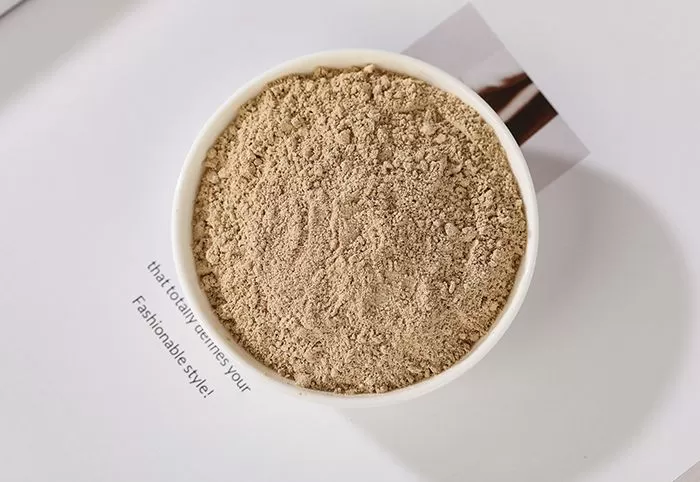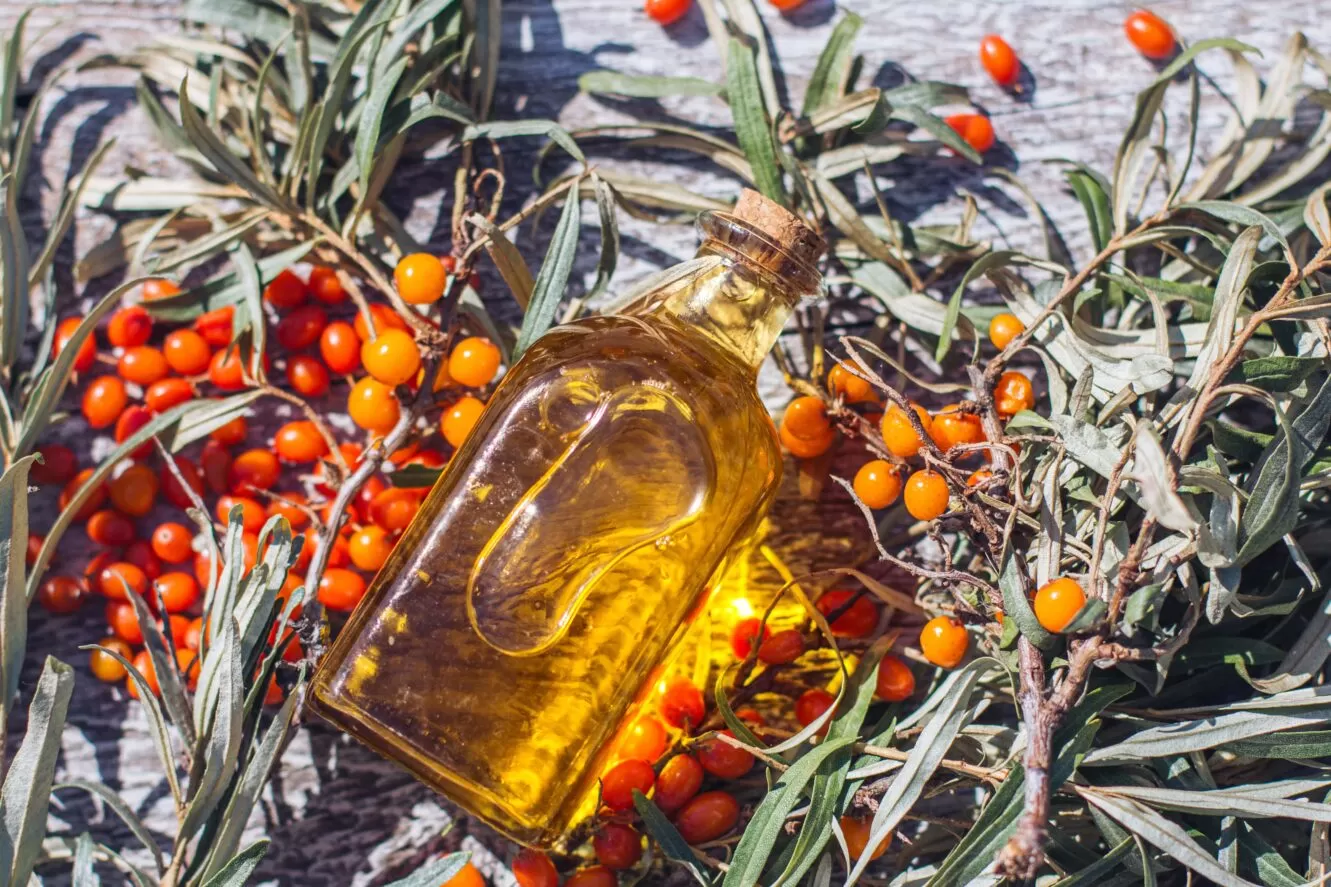- 0086-571-85302990
- sales@greenskybio.com
Navigating Interactions: What Not to Take with Sea Buckthorn
2025-04-07
Sea buckthorn, a berry revered for its exceptional nutritional profile, has gained significant attention as a superfood and herbal remedy. Known for its high content of essential fatty acids, antioxidants, vitamins, and minerals, sea buckthorn is used to support skin health, improve cardiovascular function, and promote overall wellness. However, like any supplement or natural product, it is important to understand potential interactions it may have with other substances. This article provides a detailed exploration of what not to take with sea buckthorn to maximize its benefits and ensure safe consumption.
The Nutritional Power of Sea Buckthorn
Sea buckthorn is renowned for its high concentration of omega-7 fatty acids, rare but beneficial compounds that contribute to cellular health and skin regeneration. It also contains omega-3, omega-6, and omega-9 fatty acids, which are crucial for maintaining cardiovascular integrity and reducing inflammation. Its rich array of vitamins, especially vitamin C, vitamin E, and an array of B vitamins, alongside potent antioxidants such as flavonoids and carotenoids, position sea buckthorn as a powerhouse for protecting against oxidative stress and supporting immune function.
Understanding Sea Buckthorn’s Interactions
Though sea buckthorn is lauded for its health benefits, there are certain medications and supplements that may not be compatible with it. Being informed about potential interactions helps in avoiding adverse effects and ensures that you are getting the most from its therapeutic properties.
1. Anticoagulants and Antiplatelet Medications
One of the main considerations when taking sea buckthorn involves its potential impact on blood clotting. Sea buckthorn is known to have anticoagulant properties, which can amplify the effects of blood thinners such as warfarin, clopidogrel, and aspirin. If you are on such medications, combining them with sea buckthorn might increase the risk of excessive bleeding or bruising. It is advisable to consult with a healthcare provider before adding sea buckthorn to your regimen if you are on blood-thinning medications.
2. Antihypertensive Medications
Sea buckthorn has been associated with modest blood pressure reduction due to its fatty acid and antioxidant profile, which can help with vasodilation and improved blood flow. For individuals taking antihypertensive drugs, the combination may lead to an additive effect, causing blood pressure to drop lower than desirable levels. If you are being treated for high blood pressure, it’s crucial to monitor your readings and discuss sea buckthorn use with a healthcare professional to ensure safe supplementation.
3. Blood Sugar Lowering Drugs
Research suggests that sea buckthorn might have the capability to influence blood sugar levels. While this can be beneficial for individuals managing diabetes, there is potential for interactions with medications designed to lower blood sugar, such as metformin. The combined effect might lead to hypoglycemia (low blood sugar), which can manifest as dizziness, confusion, and weakness. Adjusting drug dosages and careful monitoring under professional guidance is essential if incorporating sea buckthorn with these medications.
4. Other Herbal Supplements with Blood-Thinning Effects
Sea buckthorn should be cautiously taken with other herbal supplements known for their anticoagulant properties, such as ginkgo biloba, garlic, and ginger. The potentiation effect may increase bleeding risk. Consulting an integrative medicine practitioner or a naturopath can help tailor a supplement plan that minimizes interaction risks.
5. Fatty Acid Supplements
Given sea buckthorn’s rich fatty acid content, consuming it alongside concentrated omega fatty acid supplements could lead to an imbalance or excess intake of certain fats, potentially causing digestive discomfort or issues related to high-fat ingestion like diarrhea or bloating. It is better to evaluate existing dietary sources and overall fatty acid intake before adding sea buckthorn to ensure balanced nutrition.
6. Pregnancy and Breastfeeding Considerations
While not directly an interaction, the safety of sea buckthorn during pregnancy and breastfeeding has not been extensively studied. Therefore, it’s advisable to avoid supplementation during these periods unless cleared by a healthcare provider to rule out any unforeseen effects on maternal and fetal health.
Maximizing Sea Buckthorn Benefits Safely
To safely enjoy the benefits of sea buckthorn, it’s vital to start with appropriate dosing and awareness of its interactions. Establishing clear communication with healthcare providers regarding all medications and supplements you take will help avert adverse interactions. Clinical experts can provide personalized advice and adjustments to your supplementation plan based on individual health conditions and goals.
Incorporating sea buckthorn into your diet should be a thoughtful decision underpinned by an understanding of your unique health profile. While it offers numerous health benefits, ensuring that it complements other aspects of your wellness regimen is key to achieving optimal results without compromising safety.
In conclusion, awareness and careful integration of sea buckthorn into health plans enable users to harness its full potential while maintaining safety and health efficacy. Being informed, vigilant, and consultative is the best approach to prevent interactions and achieve wellness through sea buckthorn supplementation.
- ▶ Hesperidin
- ▶ citrus bioflavonoids
- ▶ plant extract
- ▶ lycopene
- ▶ Diosmin
- ▶ Grape seed extract
- ▶ Sea buckthorn Juice Powder
- ▶ Beetroot powder
- ▶ Hops Extract
- ▶ Artichoke Extract
- ▶ Reishi mushroom extract
- ▶ Astaxanthin
- ▶ Green Tea Extract
- ▶ Curcumin Extract
- ▶ Horse Chestnut Extract
- ▶ Other Problems
- ▶ Boswellia Serrata Extract
- ▶ Resveratrol Extract
- ▶ Marigold Extract
- ▶ Grape Leaf Extract
- ▶ blog3
- ▶ blog4
- ▶ blog5
-
what is diosmin expert
2025-04-07
-
Why is sea buckthorn expensive?
2025-04-07
-
Is sea buckthorn good for fatty liver?
2025-04-07
-
What Does Sea Buckthorn Juice Taste Like?
2025-04-07
-
Longan Extract
2025-04-07
-
Tinospora cordifolia extract
2025-04-07
-
Berberis aristata Extract
2025-04-07
-
Curcuma Longa Extract
2025-04-07
-
Konjac Powder
2025-04-07
-
Lycopene
2025-04-07
-
White Willow Bark Extract
2025-04-07
-
Epimedium extract powder
2025-04-07
-
Alisma Extract
2025-04-07
-
Buckthorn bark extract
2025-04-07






























